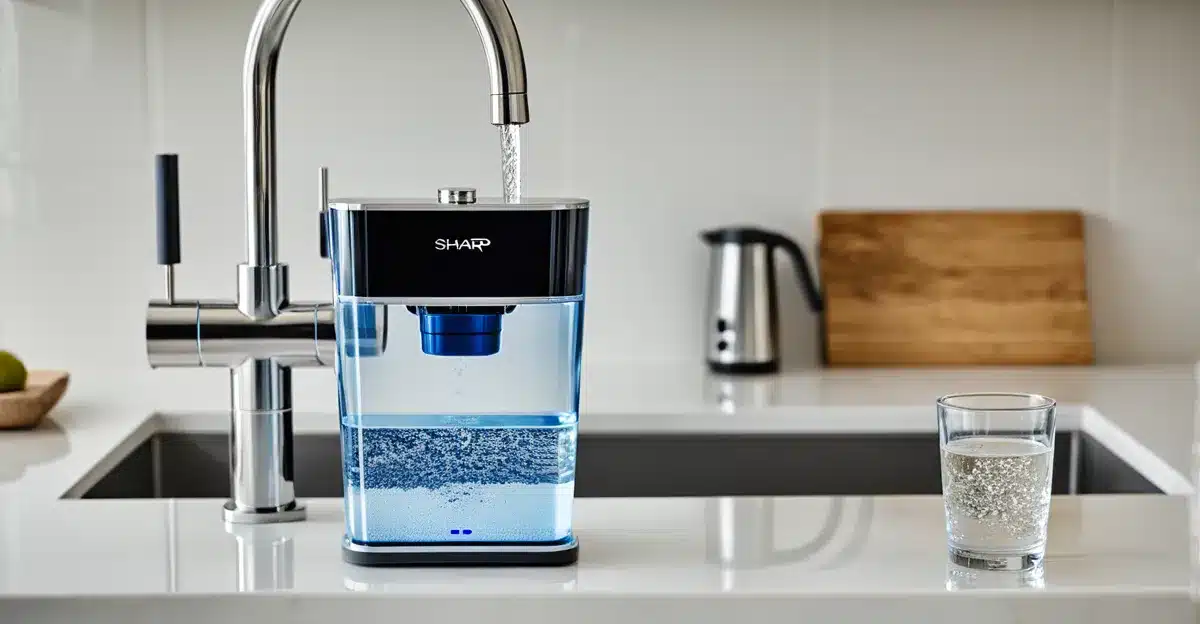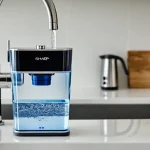Comparing Water Filtration Technologies for UK Homes
When exploring water filtration technologies UK, it’s crucial to understand the common challenges faced by households. UK water issues primarily include limescale buildup, chlorine taste and odour, and traces of heavy metals such as lead.
Different types of water filters address these problems with varying effectiveness. Activated carbon filters excel at removing chlorine and improving water taste, making them ideal for those troubled by chemical tastes. Conversely, reverse osmosis systems offer a more comprehensive purification by filtering out heavy metals and dissolved solids, though they can be slower and require more maintenance.
In the same genre : How can UK families personalize their home interiors on a budget?
For hard water concerns linked to limescale, water softeners work by exchanging calcium and magnesium ions, significantly reducing deposits on appliances and pipes. UV filtration, meanwhile, is primarily used to disinfect water by neutralising bacteria and viruses but does not remove chemical contaminants or hardness.
Choosing the right water filtration technology depends on the specific UK water issues present: activated carbon for taste and odour, reverse osmosis for comprehensive purification, water softeners for limescale, and UV systems for biological contamination control. Understanding these distinctions ensures better water quality tailored to your home’s needs.
Additional reading : How do UK residents choose the right water filtration systems for their homes?
Evaluating Popular Water Filtration Systems
Understanding the best water filters UK has to offer requires a close look at various system types and their performance. Leading brands excel in different areas, catering to diverse needs.
Countertop filters offer easy installation and portability, making them ideal for renters or smaller households. They typically use activated carbon to reduce chlorine and sediments efficiently, but may fall short on removing dissolved minerals.
Under-sink systems provide a more permanent solution, often combining sediment, carbon, and sometimes reverse osmosis stages. These deliver higher purity water but require professional installation and more maintenance.
Whole-house filtration systems are designed to treat all water entering a home. Popular among UK consumers seeking comprehensive protection, these systems reduce contaminants like iron, chlorine, and hardness. However, they tend to be more expensive and complex.
Jug filters remain the most budget-friendly and accessible option. Suitable for basic impurity reduction, they appeal to those prioritizing convenience but might not address all contaminants.
UK reviews highlight the importance of matching a filtration system to specific water quality needs and household size. This approach ensures users benefit from the strengths of their chosen leading brands without unnecessary complexity or cost.
Understanding Costs and Certification Standards
Choosing a water filter requires balancing water filter cost UK with quality and compliance. Initial purchase and installation prices vary: basic under-sink filters can cost around £50-£150, while whole-house systems reach £400 or more. These upfront costs reflect differences in filtration capacity and technology.
Ongoing expenses are crucial to consider. Replacement cartridges typically cost £20-£60 and require changing every 3 to 6 months, depending on usage and water quality. Regular maintenance ensures the system performs effectively without compromising safety or taste.
Certification standards such as NSF International and WRAS (Water Regulations Advisory Scheme) confirm that filters meet stringent UK compliance. NSF certification verifies that a filter reduces specific contaminants as claimed, while WRAS compliance confirms suitability for UK plumbing and water safety regulations. Choosing filters with these certifications helps avoid ineffective or unsafe products, ensuring clean water and peace of mind.
In summary, understanding the water filter cost UK involves considering both initial and ongoing expenses, alongside verifying filtration certification. This ensures long-term UK compliance and water safety, making it a wise investment for any household.
Installation, Maintenance, and Practical Considerations
Installing water filters in the UK is generally straightforward, designed with user-friendliness in mind. Many systems fit standard UK plumbing setups, reducing compatibility issues. Before installing, check the filter size and connection types to ensure seamless integration with your existing pipes. Some models come with detailed guides, allowing homeowners to install without professional help, saving time and cost.
Routine system maintenance is crucial for optimal performance. Most filters require cartridge replacement every 3 to 6 months, depending on usage and water quality. Easy access to the filter housing simplifies this process, and many units feature indicator lights or alerts to remind users when maintenance is due. Regular cleaning prevents blockages and extends the lifespan of the filter.
When choosing a water filtration system, consider warranties and customer support offered by UK suppliers. Reputable vendors provide comprehensive guarantees and responsive service to resolve issues swiftly. This support is vital for peace of mind, especially for newcomers to water filtration systems. Prioritize filters with well-documented warranties and accessible customer care for a hassle-free experience.
Expert Insights and User Reviews
Experts consistently emphasize choosing water filters designed explicitly for UK water quality, where hardness and chlorine levels vary significantly. These expert water filter recommendations UK often highlight systems with multi-stage filtration to tackle common contaminants, ensuring tap water tastes fresher and is safer. For instance, activated carbon filters combined with ion exchange resins are frequently suggested to manage chlorine taste and hardness.
User testimonials reinforce these recommendations. Many users praise filters that are easy to install and maintain, citing clear improvements in water taste and odor. Across various water filter reviews, reliability and filter lifespan emerge as recurring themes. Consumers commonly appreciate products backed by transparent performance data and consistent customer support.
Long-term satisfaction hinges on both filter effectiveness and cost-effectiveness. Reviews often reveal that trusted brands maintain high user ratings over multiple years, confirming ongoing value. In summary, expert water filter recommendations UK and actual user experience align closely—both prioritizing robust contaminant removal, usability, and filter longevity. These insights help consumers confidently select systems suitable for UK homes.
Practical Tips for Choosing the Best Water Filtration System
Selecting the right water filtration system requires careful consideration of your household’s specific needs. Begin by identifying the types of contaminants common in UK water supplies, such as chlorine, limescale, or heavy metals. This step ensures you understand how to choose a water filter UK that targets these impurities effectively.
Create a buying guide checklist emphasizing essential features: filter lifespan, maintenance ease, and certification standards like NSF or WRAS approval. For example, if your water is hard, prioritize filters designed to reduce limescale buildup. If taste and odor are concerns, opt for activated carbon filters.
Another valuable tip is to evaluate capacity based on your household size, as systems vary in their daily filtration volume. This practical approach prevents overpaying for oversized units or enduring frequent replacements in undersized models.
When considering where to buy, look for trusted retailers and suppliers specializing in water filtration. Verified online stores and reputable local dealers often provide authentic products with proper warranties, ensuring peace of mind. Being informed on how to choose a water filter UK streamlines your path to healthier, better-tasting water.





